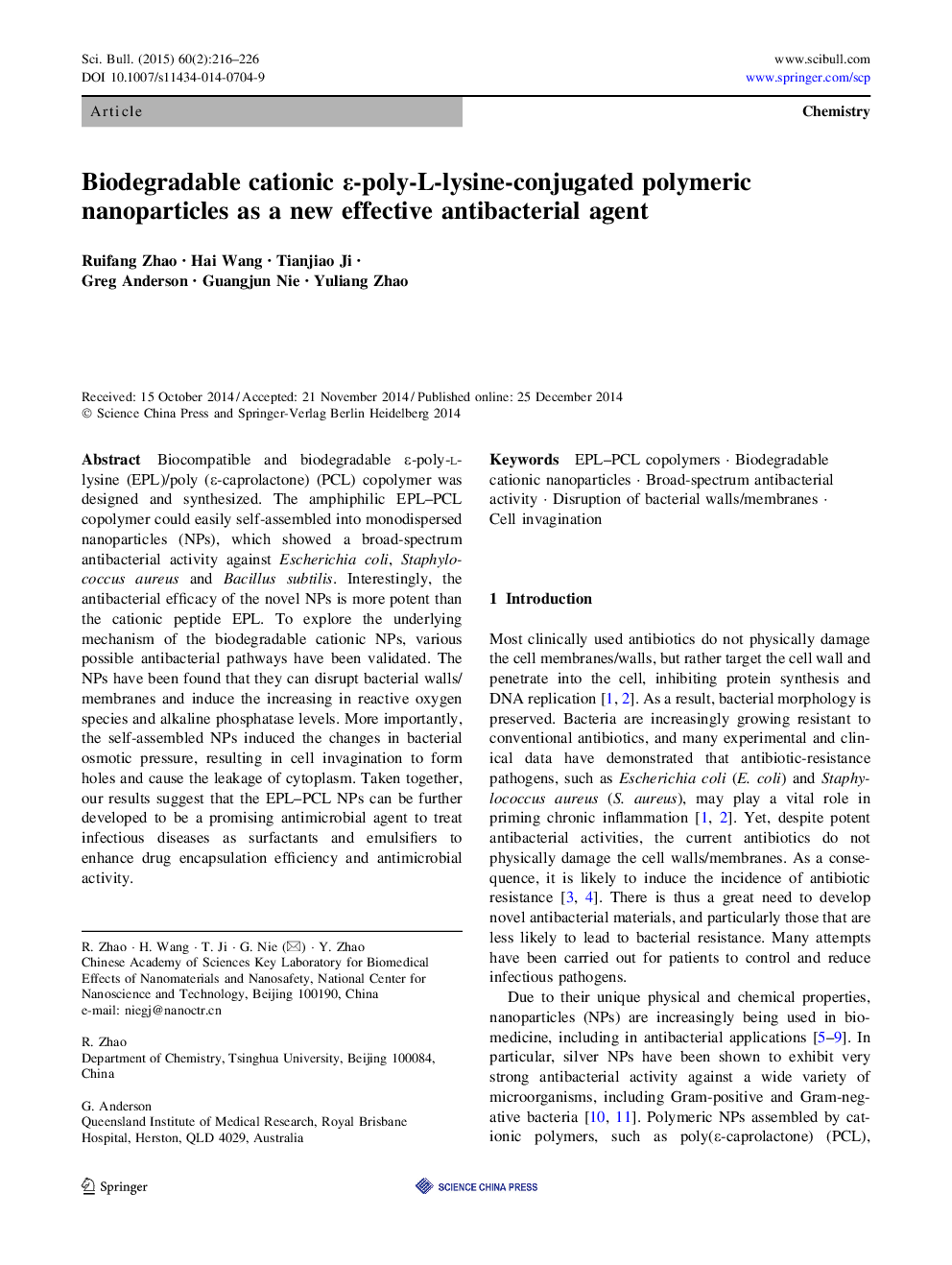| Article ID | Journal | Published Year | Pages | File Type |
|---|---|---|---|---|
| 10998217 | Science Bulletin | 2015 | 11 Pages |
Abstract
Biocompatible and biodegradable ε-poly-l-lysine (EPL)/poly (ε-caprolactone) (PCL) copolymer was designed and synthesized. The amphiphilic EPL-PCL copolymer could easily self-assembled into monodispersed nanoparticles (NPs), which showed a broad-spectrum antibacterial activity against Escherichia coli, Staphylococcus aureus and Bacillus subtilis. Interestingly, the antibacterial efficacy of the novel NPs is more potent than the cationic peptide EPL. To explore the underlying mechanism of the biodegradable cationic NPs, various possible antibacterial pathways have been validated. The NPs have been found that they can disrupt bacterial walls/membranes and induce the increasing in reactive oxygen species and alkaline phosphatase levels. More importantly, the self-assembled NPs induced the changes in bacterial osmotic pressure, resulting in cell invagination to form holes and cause the leakage of cytoplasm. Taken together, our results suggest that the EPL-PCL NPs can be further developed to be a promising antimicrobial agent to treat infectious diseases as surfactants and emulsifiers to enhance drug encapsulation efficiency and antimicrobial activity.
Related Topics
Physical Sciences and Engineering
Chemistry
Chemistry (General)
Authors
Ruifang Zhao, Hai Wang, Tianjiao Ji, Greg Anderson, Guangjun Nie, Yuliang Zhao,
